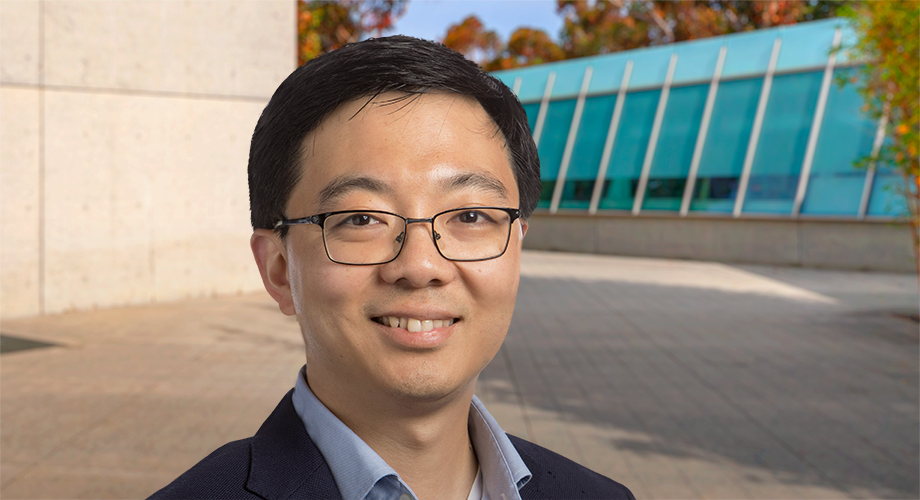
Li Ye, PhD, professor in the Department of Neuroscience and the Abide-Vividion Chair in Chemistry and Chemical Biology. Credit: Scripps Research
Scripps Research neuroscientist Li Ye named an HHMI Investigator
This honor from the Howard Hughes Medical Institute recognizes Ye’s “whole-body” approach to studying the how the brain functions in healthy versus diseased states.
July 23, 2024
LA JOLLA, CA—A key feature of evolution is that as the brain grows larger, more complex and more active, it requires additional support from the rest of the body. Li Ye, PhD, a professor in the Department of Neuroscience, has now been named a Howard Hughes Medical Institute (HHMI) Investigator to support his research revealing how the brain uses and manages energy—uncovering key insights about the brain-body connection and how the nervous system functions.
“It’s an honor to be recognized by HHMI: an esteemed organization that is transforming the power of science around the world,” says Ye, who is also the Abide-Vividion Chair in Chemistry and Chemical Biology. “With the institute’s generous support, my team plans to continue focusing on how both the body and the nervous system’s energy use affects healthy and diseased states.”
This year, Ye is among 26 scientists who have been named an HHMI Investigator from a pool of nearly 1,000 eligible applicants. Each investigator in this new cohort will receive around $11 million over a seven-year term, which is renewable indefinitely pending a successful scientific review. Funding covers the investigator’s full salary and benefits, a research budget, scientific equipment and additional resources.
The evaluation focused on research culture and mentoring, and highlighted individuals’ efforts to make science more accessible to the public.
“When scientists create environments in which others can thrive, we all benefit,” says HHMI President Erin O’Shea, PhD. “These newest HHMI Investigators are extraordinary, not only because of their outstanding research endeavors but also because they mentor and empower the next generation of scientists to work alongside them at the cutting edge.”
At Scripps Research, Ye explores the brain’s role in regulating metabolism. The central nervous system (CNS) is sensitive to metabolic stress, as neurons require high levels of energy to function. Ye and his lab want to know how the CNS adapting to such stress affects the body’s physiology at the biochemical, cellular and circuit levels. The long-term goal is to better understand and target metabolic disorders as well as neurodegenerative diseases.
To accomplish this, Ye and his lab design new tools for brain-wide structural mapping. These technologies integrate concepts and methods from a range of disciples, including neuroscience, molecular metabolism and chemical biology. Utilizing these innovative platforms, they have revealed several key insights about the inner workings of the nervous system, including a 2023 Nature study showing how cold temperatures trigger the brain to boost appetite.
Ye earned his PhD in Biological Sciences from Harvard University. He completed postdoctoral studies at Stanford University and the Howard Hughes Medical Institute before joining Scripps Research in 2018. Ye has received several honors for his research, including the Baxter Foundation Young Faculty Award, the Chan Zuckerberg Initiative’s Ben Barres Early Career Acceleration Award, the NIH Director’s New Innovator Award and the Whitehall Foundation Research Award.
For more information, contact press@scripps.edu

